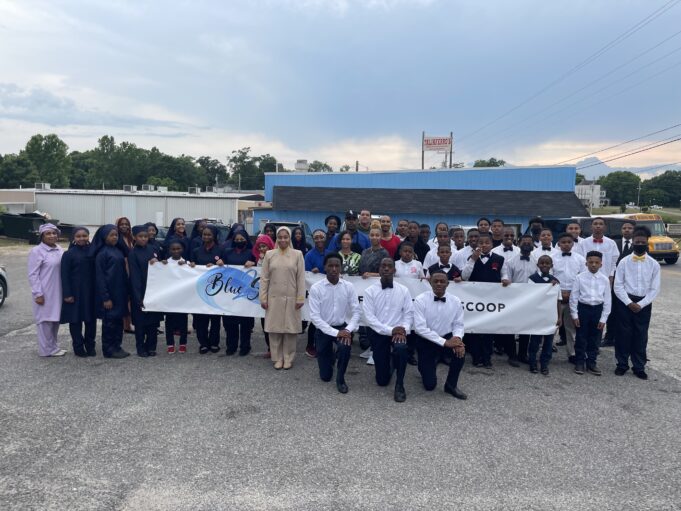Muhammad University of Islam (MUI) West took 45 students to 14 venues, including Black-owned farms and Historically Black Colleges and Universities during an eight-day trip to Atlanta, Georgia. The trip included a Black college tour to the Atlanta University Center (Spelman College, Morehouse College, Clark Atlanta University and Morris Brown College). The centerpiece of their visit was the 1,556-acre Muhammad Farms in Terrell County.
“When we took the children to the Nation of Islam’s farm, in every direction you could look, everything you could see was the Nation of Islam’s,” Salih Muhammad said. The Nation’s farm is so large the children had to get a car tour, just to see half of it, he said.
After visiting the Nation’s farm for two days, the students visited farms, ranging from six to 30 acres, owned by several Muslims in the Nation of Islam.
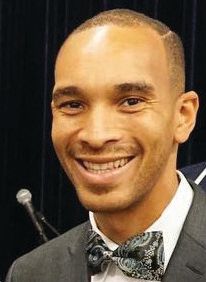
Photo: Sheman Muhammad
Their journey stemmed from the Honorable Minister Louis Farrakhan’s desire that students become 30 the FinAl CAll August 23, 2022 Muhammad University of Islam students engaged in agriculture upon leaving Muhammad University Islam and feedback from parents, according to then-director Salih Muhammad, a graduate of MUI in Oakland and Berkeley University. He thanked Western Region Student Minister Abdul Malik Sayyid Muhammad, the Student Laborers and the Believers for financial contributions that helped make the trip, which included 15 adults and five passenger vans, possible.
“We did a survey of the parents at the beginning of the school year asking what field do you want to put your child in and out of 130-plus students only one family said, ‘I want my child interested in agriculture.’ So as a team, we could observe and see although we believe in Allah and His Messenger, we were missing something from what Allah and His Messenger wanted for us, because they have taught us that farming is the engine of national life,” stated Salih Muhammad during a report back at Muhammad Mosque No. 27 in the Spring. “If we’re not putting our children into agriculture, then we would not allow ourselves to have a future because the future is based on land,” he said.
In their own words, students Cynseehr Muhammad, James Fountain and Kaleem Muhammad shared some of their day-to-day activities, personal experiences, and their current outlook on farming and agriculture.— Submitted by Salih Muhammad
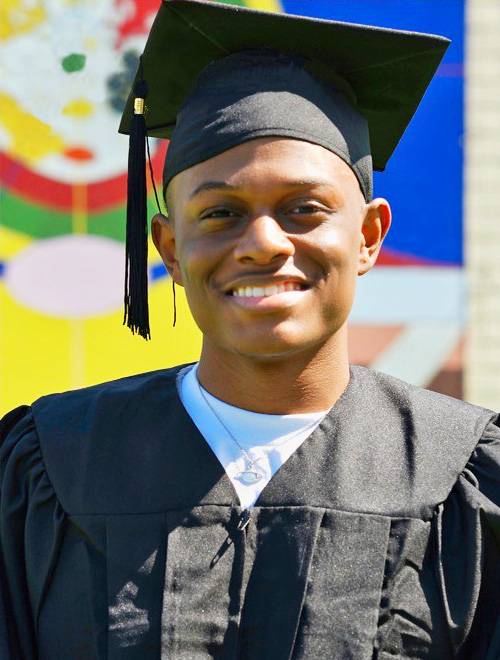
Since the trip has begun, my beloved brothers from both MUI Oakland and Los Angeles have had quite the eventful time. Both Wednesday, May 18th and Thursday, May 19th consisted of visiting Muhammad Farms, the Museum of Agriculture and Historic Villages here within Albany and Tifton, Georgia. Visiting both locations has been exceptionally exciting but not more exciting than reconnecting with my brothers, whom I have not seen in person for over two years since the pandemic has begun. Although we are able to connect with one another through our Zoom classes, it isn’t comparable to the experience we have when in-person. Nonetheless, our lodging circumstances, the information we’ve attained over the course of the trip, and activities we have participated in all have contributed significantly to the experience during this trip.
I arrived Tuesday, May 17th at Albany State University to ensure that I was settled into my assigned dorm room here on this campus. As a senior in high school who is heading to college in only a few months, analyzing the living quarters we would be lodging in brought me to the realization that this is almost the reality I would be living in once I’m officially on my desired college grounds. In addition, it also aided me in generating and restoring stronger bonds amongst my dearest brothers of the Nation of Islam. For me, being independent before leaving your family to pursue a career or attend college is crucial for survival due to the fact that there will be no one to take charge of you except for yourself. Furthermore, staying within the dorms amongst our brothers and being attentive to the information we have received thus far on the trip have also permitted us to register the fact that we have a great responsibility as Black people and believers of Islam in America.
Wednesday and Thursday my brothers and I visited Muhammad Farms to grasp an understanding of the land we have available to us and how it should be tended to for generations to come within the Nation of Islam. Dr. Ridgley Mu’min Muhammad, who has operated the farm for over a decade, enlightened us with the actuality that this land is OURS and should be put to great use rather than be ignored and wasted. Not only were we informed of the importance of this land we have acquired as a Nation, but we were also informed by Dr. Ridgley that we should find what it is we enjoy doing and pursue it as a career, rather than working a job that we don’t quite like.
Nevertheless, what we contribute to Muhammad Farms today is going to affect the outcome of the farm a decade from now. However, before receiving this mental knowledge, we also were in need of a physical understanding on how to care for this farm.
During our time on Muhammad Farms, we also contributed to removing weeds from the watermelon plants specifically. Partaking in this activity allowed for not only brotherhood to come into full effect, but also to give a glimpse on the field work that our ancestors had to do on a day-to-day basis during slavery. Consequently, I feel I have germinated a profound respect for those who were slaves and those dedicated in the field of agriculture. This land we were provided will improve our Black communities economically around the world. Brother James plans to attend Sacramento State University and pursue a career in film and graphic design.
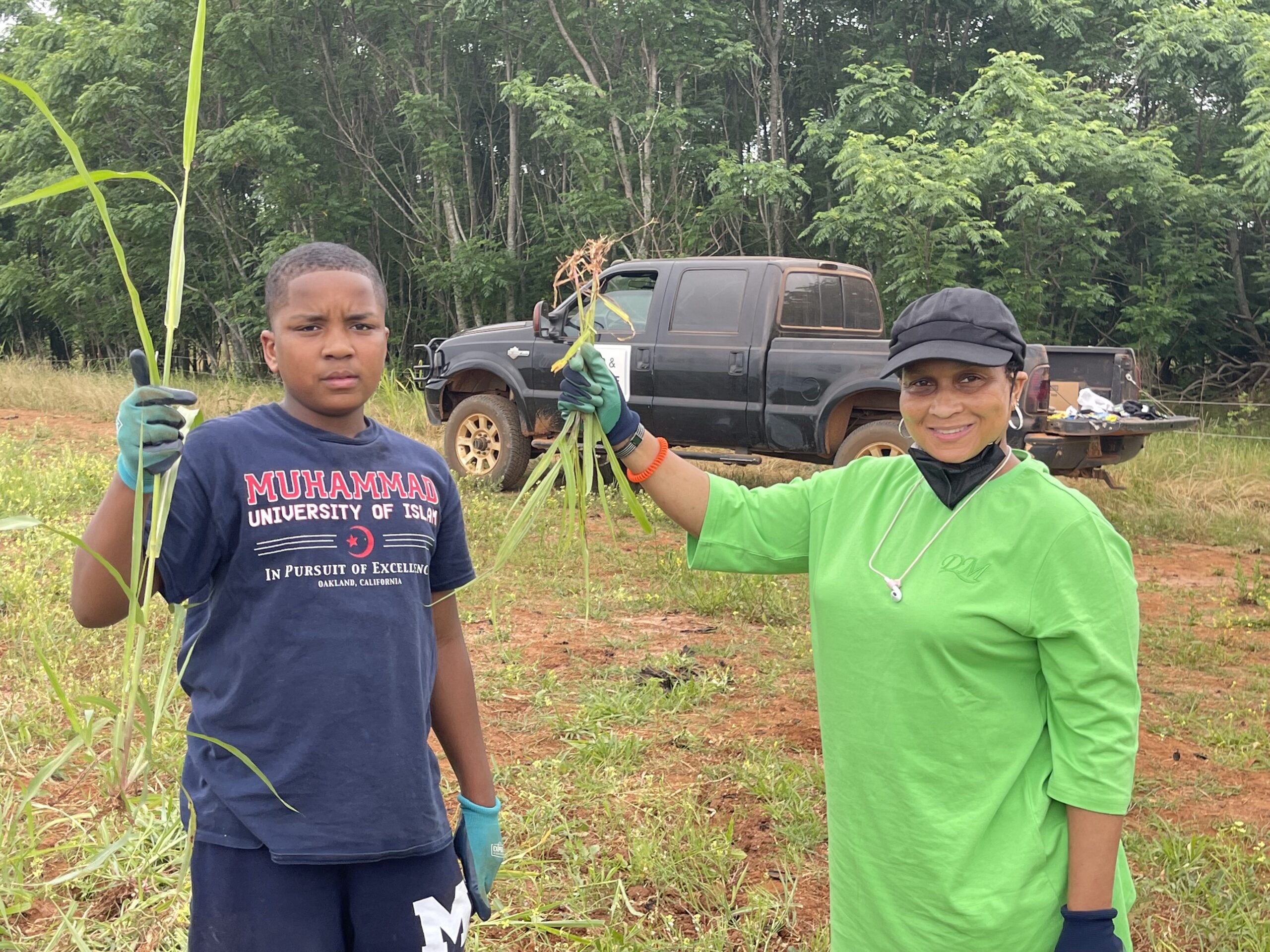
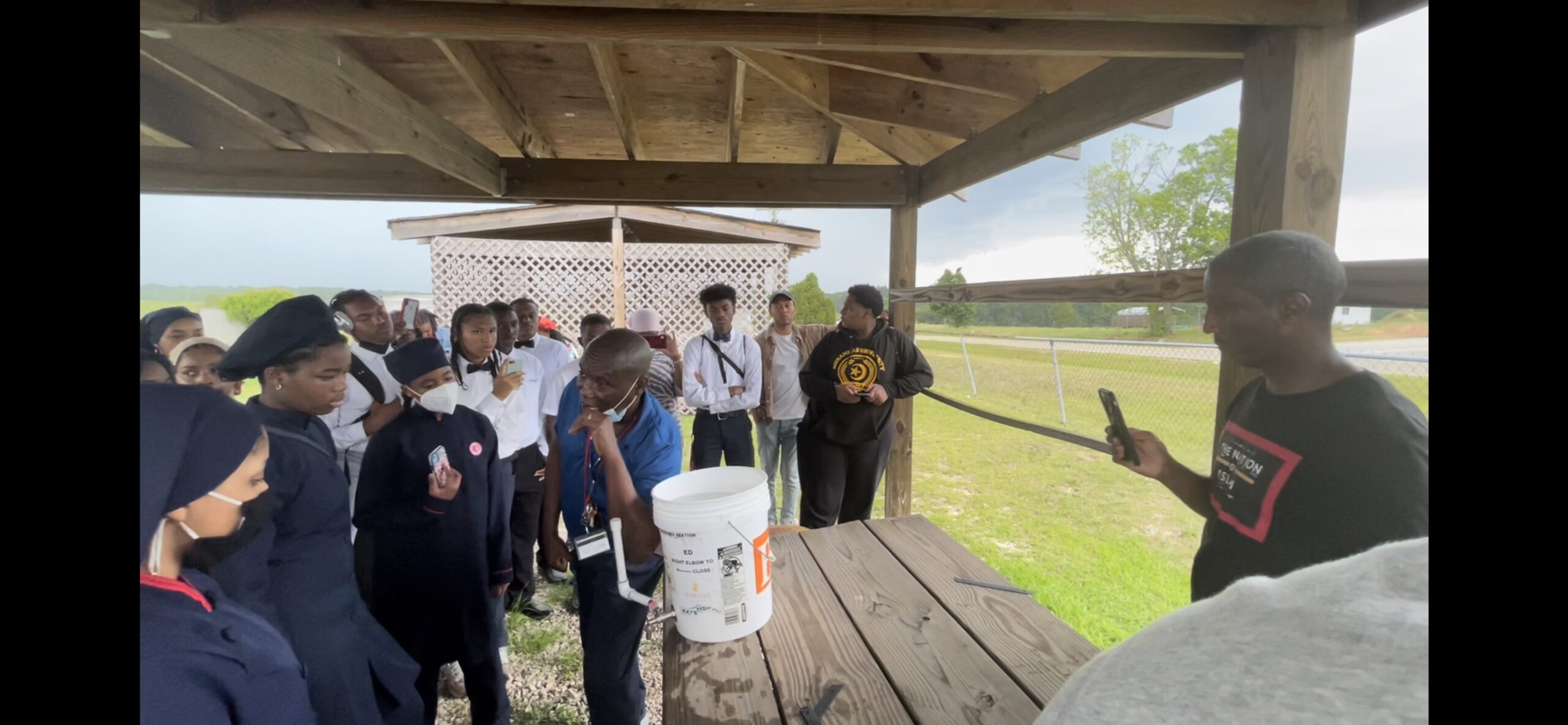
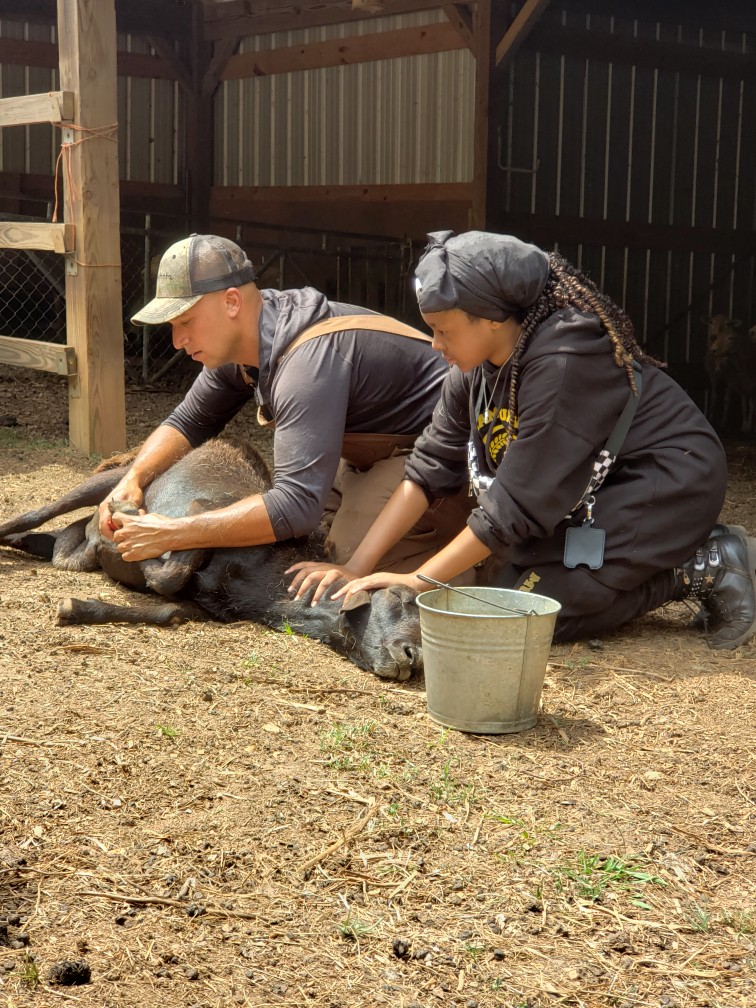
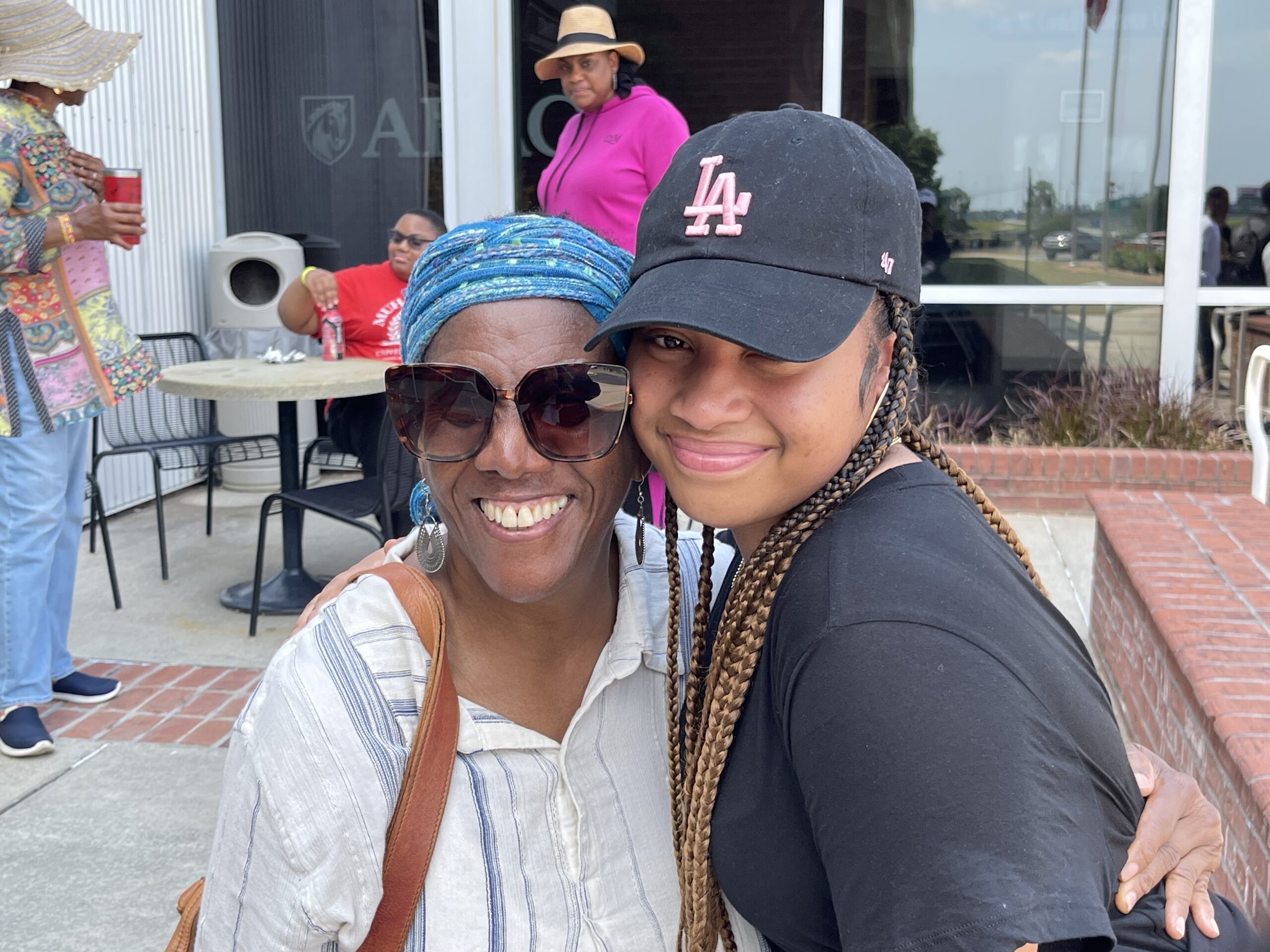
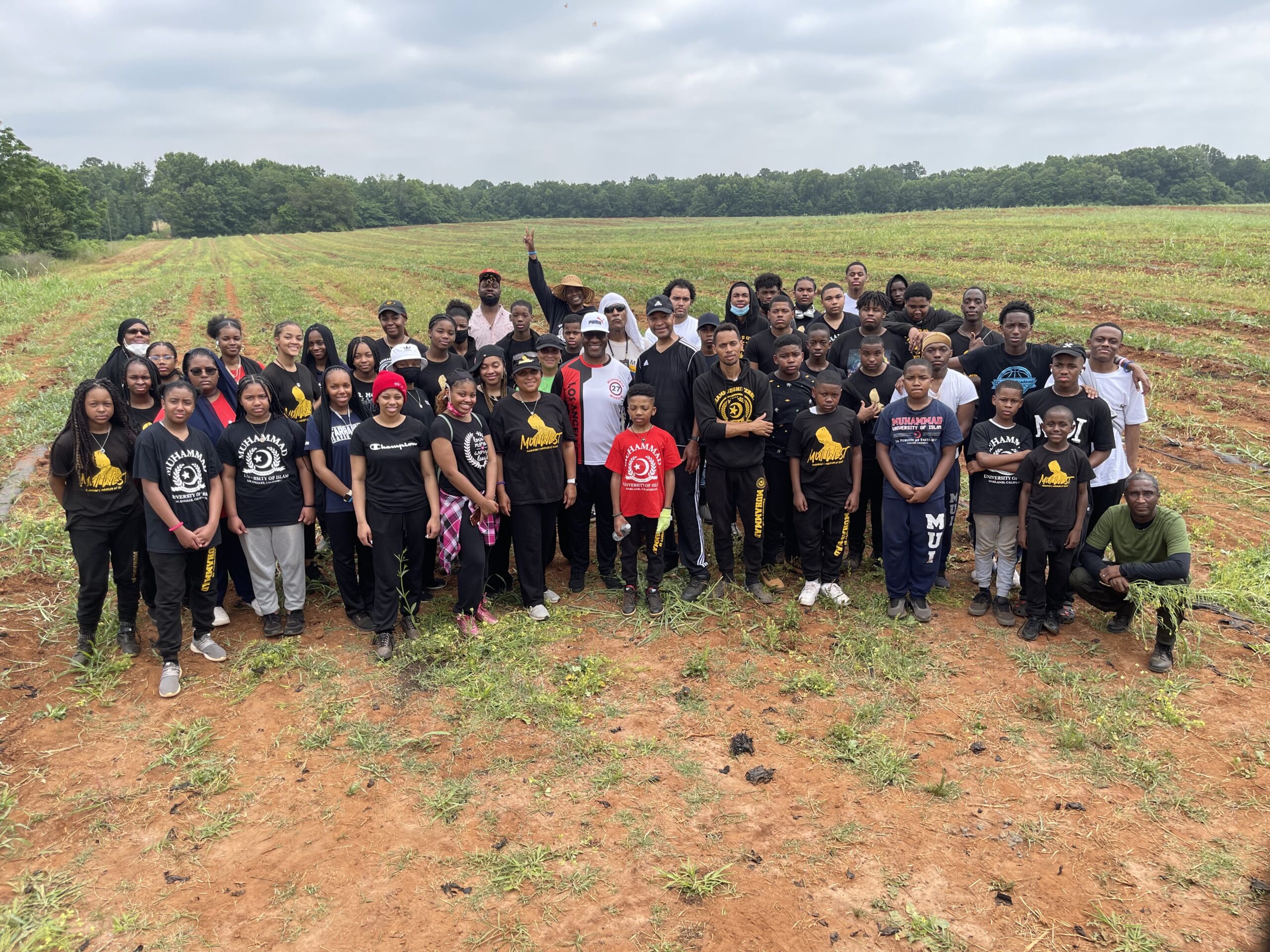
A trip filled with brotherhood and learning, The Muhammad University of Islam’s visit to the Nation of Islam’s farm in Terrell County, Georgia, was a heartwarming experience. When we first arrived at the farm on Wednesday, May 18, I did not know what to expect. I was hot and sweaty from suffering under the burning Georgia sun, and it seemed as if the mosquitoes and gnats refused to leave me alone. As soon as we pulled onto the farm, Dr. Ridgley Mu’min Muhammad (Manager of Muhammad Farms and Nation of Islam Student Minister of Agriculture) began to teach us the importance of knowing and understanding the history of Black farmers in Georgia and all over the South.
Dr. Ridgley began to explain to us that after slavery, our people were building independent cities through farming, trade, and entrepreneurship and that our independence scared the White man so much that he decided that he had to destroy us. This led to the tactics that the White man employed to destroy our unity, and farming, such as the creation of the Ku Klux Klan to scare us out of the South, and integration, which led to us abandoning our farms and business in favor of White establishments. Dr. Ridgley also stressed to us the importance of the knowledge of the economics surrounding agriculture. He taught us that it is not enough to just grow crops but to also know how to sell the plants, or the products, that come from the crops that we grow.
Once Dr. Ridgley finished talking to us, we had the privilege of taking a tour of the beautiful farmland and surrounding property. The land boasted magnificent trees, multiple rivet-ing lakes and creeks, and miles of an awesome mix of forest and grassland. One thing that I and my other brothers noticed was that there were not enough workers to maximize the awesome potential of the land available. This made me realize that it is up to us, MUI students, to help Dr. Ridgley and our Nation by fishing new believers into the mosque who are willing to help Dr. Ridgley on the farm or going to do the work ourselves.
On our second day at the farm, we got to work. We began the arduous task of pulling up weeds in the crop fields to ensure the safety of the plants. Without even pulling many weeds it became obvious that working in the fields is backbreaking and demanding work that must be done properly and under a watchful eye. After working for hours, we were pleasantly surprised by a visit from Western Region Student Minister Abdul Malik Sayyid Muhammad, who spoke with us about the importance of taking up study at a traditional university, while also learning practical application skills such as farming and carpentry so that we can help our Nation as quickly as possible.
As our trip came to an end, two main themes stuck out to me. The first one was practical application. Our mentors (FOI who were with us on the trip) stressed the importance of learning what we could learn and applying it the best we could to our interests and goals. We were urged to take what we heard and have a specific lesson learned that only we would identify with. This is so that we could learn not just to remember but to think for ourselves. If one can think for themselves, they can begin to do for themselves. The second thing that stood out was brotherhood. The trip would not have been half as fun, and interesting if it were not for the FOI on the trip that kept us focused, and brothers our age to grow with. The time spent bonding with the students of MUI was truly special and led me to think about the scripture from the Bible that says: “We know that we have passed from death unto life, because we love the brethren. He that loveth not his brother abideth in death.” (John 3:14)
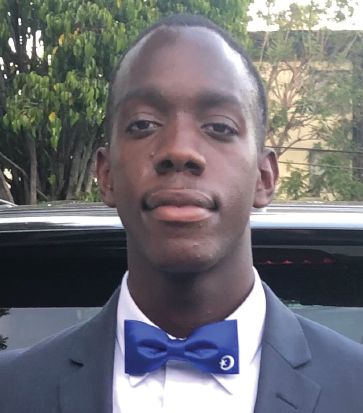
It was clear to me that the Junior FOI of MUI West had passed from death into life because of our clear-cut love of each other and our brotherhood. If I was asked again to journey to Muhammad Farms with MUI, I would most definitely say yes to this eye-opening experience. Brother Kaleem is currently an undecided major for college but interested in biology and neuroscience.
I am honored to be a part of MUI West’s second college tour. This time, by the grace of Almighty God (Allah), my school and I raised enough money to help the students fly out to Atlanta, Georgia, to visit many Believers’ farms, Tuskegee University, Clark Atlanta University, Spelman College, and more. What stood out to me the most was that all the farms looked different. I wasn’t really into agriculture and farming at first, but getting first-hand experience changed my whole perspective. I learned that there is so much more to agriculture than being in the dirt and picking crops. Farmers are actually a necessity because they’re the ones we get our fruit, vegetables, dairy, and meat products from.
The first farm we visited was Muhammad Farms, which is run by Dr. Ridgley Mu’min Muhammad and his wife Sister Anne. On the first day, we learned about growing crops organically and that other farmers spray their crops with pesticides, herbicides, and different chemicals. They are supposed to help the weeds stop growing in the crops and help stop the bugs from eating the plants. However, these pesticides contain cancer-causing chemicals. Being that Dr. Ridgley grows his crops organically with no pesticides, his crops had weeds and that’s how we learned how to pick them. One of the first things I learned from Dr. Ridgley at his farm was to find out what you want to do in life.
The next day I had the opportunity to interview him, and I asked him how can we infuse everything that you’re teaching us into the schools, specifically MUI and then in general public schools? He stated, “You can’t expect the teachers who know nothing about agriculture to be able to teach you about agriculture. You’ve got to ask the right questions, which means you’ve got to study on your own and then ask the people the right questions. Help them to do the research and bring it back. And when you go to college, you’ve got to do the same thing,” he said. “When I went to college, I made my professors teach me about business. They wanted to train me to go get a job when I finished college. I told them I didn’t come to college to learn how to get a job. I came to college to learn how to make jobs. The Messenger said to do for self. That way we won’t have to depend on the White man,” added Dr. Ridgley.
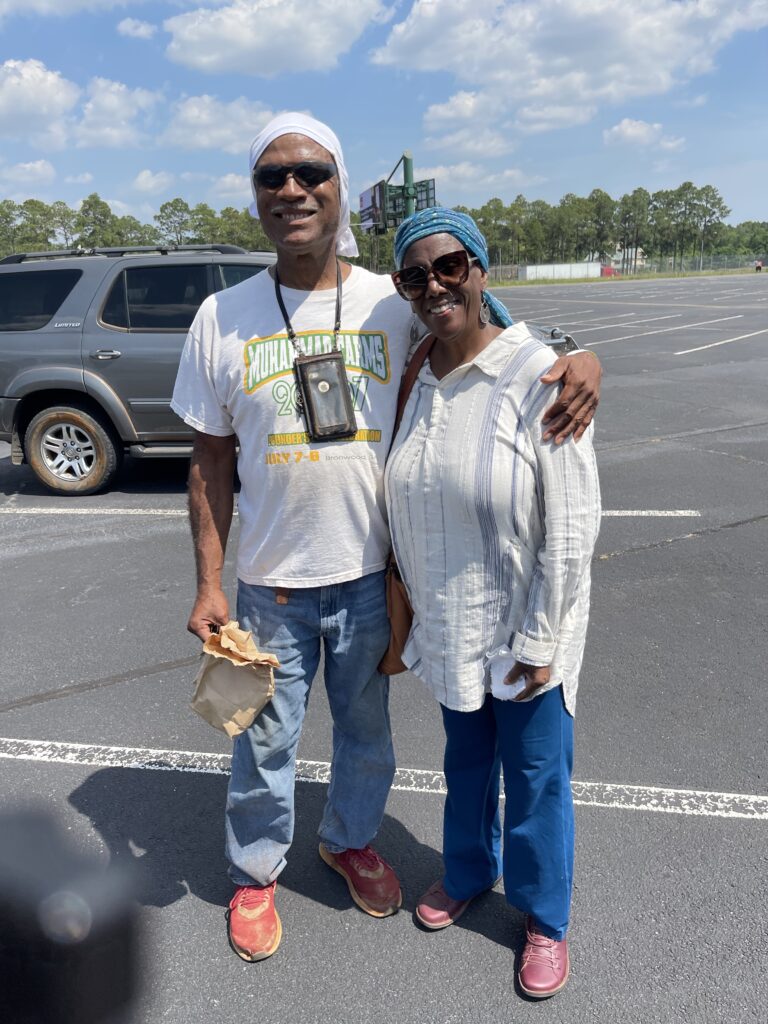
We had a surprise guest, Abdul Malik Sayyid Muhammad, who is our Western Region Student Minister. He came to visit us at the farm. I got the opportunity to interview him as well. I asked him, “As the students of MUI learn about agriculture and farming, what are some tasks you think we can include in our new farm in Los Angeles, California. He stated, “I think being here lays the fundamental foundation to first come on a farm and see what it’s like farming, because taking care of the Earth is an awesome responsibility and so I think this is the first step for the students to see how farming and agriculture works. Hopefully out of the 50 students, if just four are inspired to go into farming, then this trip was well worth it.”
Another question I asked was how will we fundraise to buy land for a farm? He replied, “Well, the Most Honorable Elijah Muhammad said that we should pool our resources together, eight of us, 10 of us, pool our resources together, having the same business plan, the same determination, believers putting their money together. We can go into the San Joaquin Valley and find out what farms are for sell and then purchase those farmlands, farm the farmland, bring the vegetation into the city, and sell it to the believers.”
I know that Minister Malik is well-associated with the gangs in LA, so I asked did he think they could provide some help as once you have a farm, you are producing and creating jobs because somebody has to plant the crops and then you have a group to harvest them, then you have to have a group that brings the products into the city, and to sell those products. “So yes, you can create a lot of jobs for gang members and not only just that, but teach them how to farm and you’d be surprised what kind of therapy this could be for gang members.” Minister Malik’s answer stood out to me because it reminded me of what Dr. Ridgley said when he went to college and made the teachers teach him about creating jobs instead of looking to go work for someone.
My school and I had the opportunity to get the college experience by staying in dorms at Albany State University. The rooms were spacious, each dorm had a kitchen area, and a table to eat at, and we had our own rooms. However, we didn’t get to tour Albany State. The first college we toured was Tuskegee University. We drove all the way to Alabama to visit the college. Our tour guides majored in agriculture and psychology. They did an absolutely wonderful job teaching us about the history of Tuskegee University, they were open to all questions, and they made it fun. We took pictures next to a statue of Booker T. Washington, which was made out of bronze. They called the statue “Lifting the Veil of Ignorance.” The statue showed Booker T. Lifting a veil of a former slave.
After we came from Muhammad Farms, we went to the Agorama Museum, where I met Dr. Ridgley’s wife, Anne Mu’min Muhammad. I had the opportunity to interview her as well about what it’s like being the wife of a farm manager. She stated, “The wife of a farm manager and being the wife of Dr. Ridgley are two different things, and I say that because he is not only a farm manager, but he does so many other things besides that. But being the farm manager’s wife is challenging because we go through so many ups and downs, especially with people, to try and help them. … But getting back to the wife of a farm manager, it’s challenging and rewarding. I’ve had lots of good times and we’ve had bad times, where we didn’t know if crops were going to make it, we didn’t know if the workers were going to come. It’s just challenging.”
I then asked her what was her role? She stated, “When I first came to the farm, I did everything, because we didn’t have anyone at the time other than one helper in Albany, Georgia, come and everything that was done on the farm and needed assistance with, I did, including driving tractors. So, I learned a lot about the farm by just being on the farm and planting the watermelons. And when I first came there, we didn’t have a transplanter, but transplanting the watermelons is a task. We planted maybe 100,000 plants and I did each one by hand riding on the back of the transplanter. That was a major improvement for us.”
This was beautiful because I also got to take a picture with Sister Anne outside of the museum. She is so nice and funny, and a hardworking wife!












